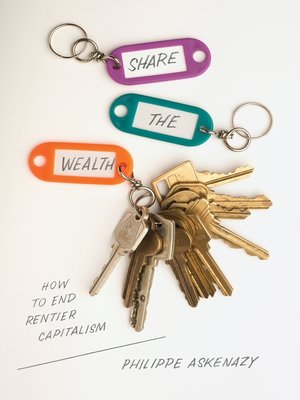
Sign up to save your library
With an OverDrive account, you can save your favorite libraries for at-a-glance information about availability. Find out more about OverDrive accounts.
Find this title in Libby, the library reading app by OverDrive.



Search for a digital library with this title
Title found at these libraries:
| Library Name | Distance |
|---|---|
| Loading... |
How can we reduce inequalities? How can we make work get better recognition and better pay?
Philippe Askenazy in this new book shows that the current share of wealth is far from natural; it results from rising rents and their capture by the actors best endowed in the economic game. In this race for rents, the world of work is the big loser: while many workers feed capital rents by increased productivity and worsened working conditions, they are stigmatized as unproductive and their earnings stagnate. By proposing a new description of the capital-work relationship, calling for a remobilization of the world of work, and particularly poorly paid employees, Askenazy shows that there is a more radical alternative to neoliberalism beyond simply redistribution.
Philippe Askenazy in this new book shows that the current share of wealth is far from natural; it results from rising rents and their capture by the actors best endowed in the economic game. In this race for rents, the world of work is the big loser: while many workers feed capital rents by increased productivity and worsened working conditions, they are stigmatized as unproductive and their earnings stagnate. By proposing a new description of the capital-work relationship, calling for a remobilization of the world of work, and particularly poorly paid employees, Askenazy shows that there is a more radical alternative to neoliberalism beyond simply redistribution.







